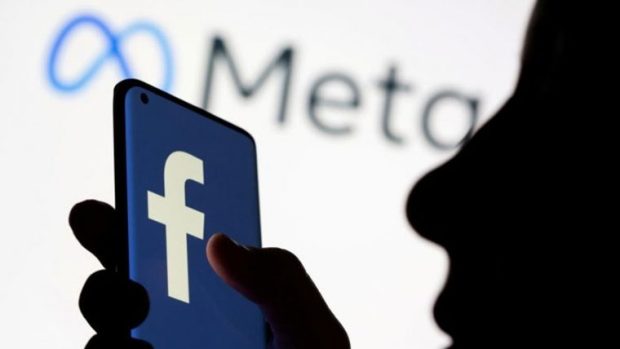
Meta to expand Facebook Protect program to India
PTI, Dec 3, 2021, 11:14 AM IST

Credit: Reuters photo
Meta (formerly Facebook) on Thursday said it is expanding its Facebook Protect security program for users like journalists and government officials, who are likely to be highly targeted by malicious hackers.
The program, which was first tested in the US in 2018 and expanded during the US 2020 elections, is now being rolled out to nearly 50 countries – including India – by the end of the year.
Users who fall within these groups will soon start seeing a prompt from Facebook asking them to turn on the ‘Facebook Protect’ option. Designed to protect accounts against cyberattacks, the program mandates that the user turns on the two-factor authentication (2FA) for their accounts.
The company, as part of its efforts to enhance security for users, is also making it easier for these groups of people to set up 2FA. The program will be expanded to India by the end of the year.
“As part of our ongoing improvements to security, we’re expanding Facebook Protect, a program designed for people that are likely to be highly targeted by malicious hackers, including human rights defenders, journalists, and government officials. No action is required unless you’re prompted to enroll,” Meta Head of Security Policy Nathaniel Gleicher said.
He added that the platform is also making it easier for these groups of people to set up 2FA.
“These people are at the centre of critical communities for public debate. They enable democratic elections, hold governments and organisations accountable, and defend human rights around the world. Unfortunately this also means that they are highly targeted by bad actors,” he explained.
Facebook Protect helps these groups of people adopt stronger account security protections like 2FA, and monitors for potential hacking threats.
Facebook Protect was first tested in 2018, and expanded ahead of the 2020 US election.
The global expansion of Facebook Protect started in September this year. Since then, more than 1.5 million accounts have enabled Facebook Protect, and of those, nearly 950,000 accounts were newly enrolled in 2FA.
“We are on track to expand the program to more than 50 countries by the end of the year, including the United States, India, and Portugal,” Gleicher said.
He noted that no action is required unless users get a notification on Facebook that they’re eligible to enroll.
“We know that there will always be a small subset of users that won’t immediately enroll, for example those that happen to be less active on our platform at the time of a given mandate. However, we believe this is an important step forward for these highly targeted communities,” he stated.
Gleicher added that in early testing, the company found that simplifying the enrollment flows, improving customer support, and mandating Facebook Protect brought adoption rates to over 90 per cent in one month for these groups.
“Over the next several months, we’re going to carefully expand this requirement globally. We’re encouraged by our early findings and will continue to improve Facebook Protect over time,” he added.
Udayavani is now on Telegram. Click here to join our channel and stay updated with the latest news.
Top News

Related Articles More

National Consumer Helpline to roll out AI-based features, partners with 1,000 firms

BTS2024: If India can make rocket sensors, it can also make car sensors, says ISRO chief Somanath

World COPD Day: Know your lung function

SpaceX successfully launches ISRO’s 4,700 kg communication satellite from US

As AI and megaplatforms take over, the hyperlinks that built the web may face extinction
MUST WATCH
Latest Additions

National Consumer Helpline to roll out AI-based features, partners with 1,000 firms

Man attempting suicide saved after friend saw his Facebook livestream

UP: 3 killed in clashes during violent protest against Sambhal mosque survey

Rishabh Pant becomes most expensive IPL buy at Rs 27 crore, Iyer fetches Rs 26.75 crore deal

Gujarat man held for impersonating govt official, duping people with forged letters
Thanks for visiting Udayavani
You seem to have an Ad Blocker on.
To continue reading, please turn it off or whitelist Udayavani.




















